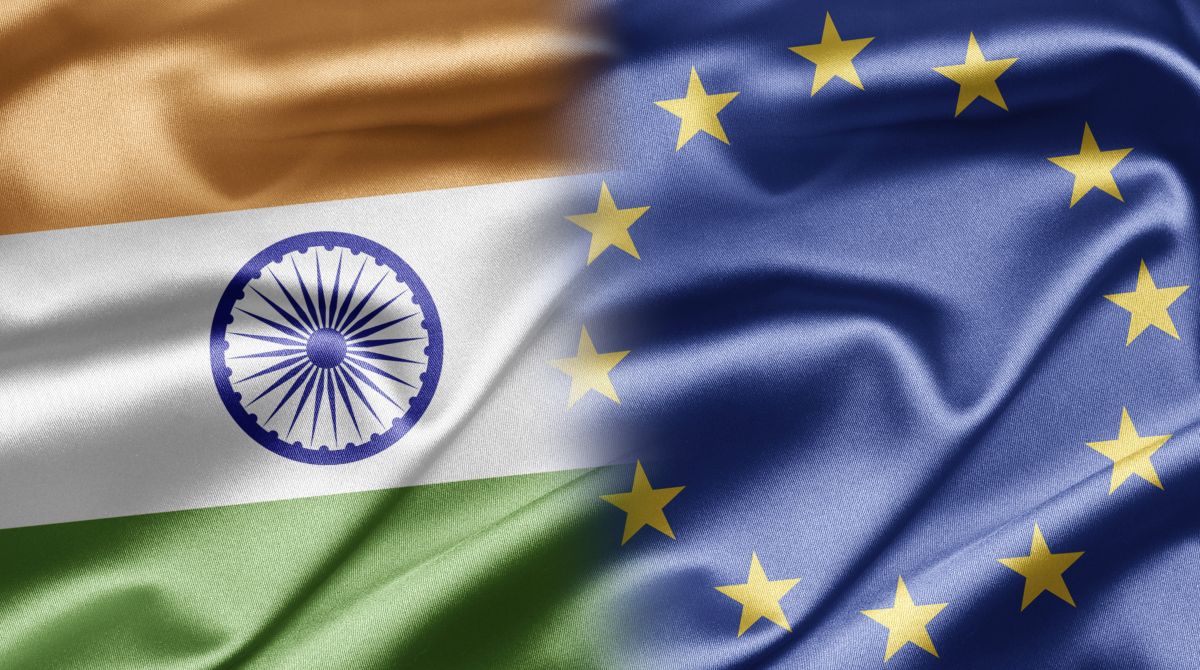EU leaders agree for new sanctions on Iran
European Union leaders agreed late on Wednesday on new sanctions targeting Iran for the direct attack on Israel.
Enhancing humanitarian coordination and developing joint actions on food security and disaster relief, would also bring clear added value, it said.

Representational Image (Photo: Getty Images)
In an ambitious ‘strategy paper’ to strengthen cooperation and partnership with India, the European Union (EU) has indicated that it was considering the possibility of negotiating with New Delhi a strategic partnership agreement in order to update the 1994 EU-India cooperation accord.
The paper, released by EU Ambassador to India Tomasz Kozlowski at a press conference here on Wednesday, replaces the last EU communication on India of 2004, recognising that India has emerged as the fastest-growing large economy and acquired an important geopolitical role.
Speaking on the occasion, Kozlowshi said the two sides were going to have military cooperation in the Indian Ocean region.The two sides were also going to significantly enhance their counter-terror cooperation to deal with the challenge of terrorism in the region, he added.
Advertisement
The strategy paper aims to strengthen the EU-India strategic partnership by focusing on sustainable modernisation and on common responses to global and regional issues. It also seeks to reinforce the effectiveness of the EU’s external action and is coherent with the implementation of the global strategy.
As an emerging global power, India plays a key role in the current multipolar world. To maintain the rules-based global order, therefore, it was vital that the EU and India implement effective multilateralism and global economic governance, the paper said.
The EU said it would seek to consolidate dialogue on multilateral issues, and to coordinate positions with India. Cooperation in the framework of the United Nations, the WTO and the G20 would be of priority.
The EU and India share common values and promote international peace and stability. The EU would work to engage India to promote common global agendas on human rights and democracy, data protection, gender equality and women’s empowerment and the inclusion of young people.
Enhancing humanitarian coordination and developing joint actions on food security and disaster relief, would also bring clear added value, it said.
The EU would seek regular exchanges and coordination with India on major foreign policy issues. Cooperation on security and defence policies would be enhanced in order to address together inter alia terrorism, cybersecurity, hybrid threats and maritime security. Crisis management ties, including military-to-military relations, would also be developed.
The EU was a natural partner in supporting India’s sustainable growth. The EU’s expertise and technology in sustainable infrastructure development, transport regulatory frameworks, circular economy, environmental protection and in digitalisation would further support India’s ongoing transition to a resource efficient economy and increase global connectivity. Enterprises would benefit from new business and investment opportunities.
It said the EU and India could do more jointly to tackle global challenges, such as climate change, environment protection, sustainable development, ocean governance, and work together on the effective implementation of the Paris Agreement.
The EU would coordinate with India at the multilateral level. It would continue supporting the International Solar Alliance, and cooperate to facilitate the clean energy transition and to implement the Sustainable Development Goals, including through an enhanced cooperation in research and innovation.
The EU would continue to work with India towards comprehensive and balanced agreements on trade and investment and support a rules-based global trade regime.
Advertisement